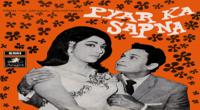
Luck is the experience of notably positive, negative, or improbable events. The naturalistic interpretation is that positive and negative events happen all the time in human lives, both due to random and non-random natural and artificial processes, and that even improbable events can happen by random chance. In this view, being "lucky" or "unlucky" is simply a descriptive label that points out an event's positivity, negativity, or improbability.
Supernatural interpretations of luck consider it to be an attribute of a person or object, or the result of a favorable or unfavorable view of a deity upon a person. These interpretations often prescribe how luckiness or unluckiness can be obtained, such as by carrying a lucky charm or making sacrifices or prayers to a deity. Saying someone is "born lucky" then might mean, depending on the interpretation, anything from that they have been born into a good family or circumstance, or that they habitually experience improbably positive events due to some inherent property or the lifelong favor of a god or goddess in a monotheistic or polytheistic religion,
Many superstitions are related to luck, though these are often specific to a given culture or set of related cultures, and sometimes contradictory. For example, lucky symbols include the number 7 in Christian-influenced cultures, but the number 8 in Chinese-influenced cultures. Unlucky symbols and events include entering and leaving a house by different doors in Greek culture, throwing rocks into the wind in Navajo culture, and ravens in Western culture. Some of these associations may derive from related facts or desires. For example, in Western culture opening an umbrella indoors might be considered unlucky partly because it could poke someone in the eye, whereas shaking hands with a chimney sweep might be considered lucky partly because it is a kind but unpleasant thing to do given the dirty nature of their work. In Chinese culture, the association of the number 4 as a homophone with the word for death may explain why it is considered unlucky. Extremely complicated and sometimes contradictory systems for prescribing auspicious and inauspicious times and arrangements of things have been devised, for example feng shui in Chinese culture and systems of astrology in various cultures around the world.
Many polytheistic religions have specific gods or goddesses that are associated with luck, including Fortuna and Felicitas in the Ancient Roman religion (the former related to the words "fortunate" and "unfortunate" in English), Dedun in Nubian religion, the Seven Lucky Gods in Japanese mythology, mythical American serviceman John Frum in Polynesian cargo cults, and the inauspicious Alakshmi in Hinduism.
Contents
Etymology and definition
The English noun luck appears comparatively late, during the 1480s, as a loan from Low German, Dutch or Frisian luk, a short form of gelucke (Middle High German gelücke). Compare to old Slavic word lukyj (?????) - appointed by destiny and old Russian luchaj (?????) - destiny, fortune. It likely entered English as a gambling term, and the context of gambling remains detectable in the word's connotations; luck is a way of understanding a personal chance event. Luck has three aspects:
- Luck is good or bad.
- Luck is the result of chance.
- Luck applies to a sentient being.
Before the adoption of luck at the end of the Middle Ages, Old English and Middle English expressed the notion of "good fortune" with the word speed (Middle English spede, Old English sp?d); speed besides "good fortune" had the wider meaning of "prosperity, profit, abundance"; it is not associated with the notion of probability or chance but rather with that of fate or divine help; a bestower of success can also be called speed, as in "Christ be our speed" (William Robertson, Phraseologia generalis, 1693).
The notion of probability was expressed by the Latin loanword chance, adopted in Middle English from the late 13th century, literally describing an outcome as a "falling" (as it were of dice), via Old French cheance from Late Latin cadentia "falling". Fortuna, the Roman goddess of fate or luck, was popular an allegory in medieval times, and even though it was not strictly reconcilable with Christian theology, it became popular in learned circles of the High Middle Ages to portray her as a servant of God in distributing success or failure in a characteristically "fickle" or unpredictable way, thus introducing the notion of chance.
Interpretations
Luck is interpreted and understood in many different ways.
As lack of control
Luck refers to that which happens to a person beyond that person's control. This view incorporates phenomena that are chance happenings, a person's place of birth for example, but where there is no uncertainty involved, or where the uncertainty is irrelevant. Within this framework, one can differentiate between three different types of luck:
As a fallacy
Another view holds that "luck is probability taken personally." A rationalist approach to luck includes the application of the rules of probability and an avoidance of unscientific beliefs. The rationalist thinks that the belief in luck is a result of poor reasoning or wishful thinking. To a rationalist, a believer in luck who asserts that something has influenced his or her luck commits the "post hoc ergo propter hoc" logical fallacy: that because two events are connected sequentially, they are connected causally as well. In general:
A happens (luck-attracting event or action) and then B happens;
Therefore, A influenced B.
More contemporary authors writing on the subject believe that the definition of good destiny is: One who enjoys good health; has the physical and mental capabilities of achieving his goals in life; has good appearance, and; has happiness in mind and is not prone to accidents.
In the rationalist perspective, probability is only affected by confirmed causal connections.
The gambler's fallacy and inverse gambler's fallacy both explain some reasoning problems in common beliefs in luck. They involve denying the unpredictability of random events: "I haven't rolled a seven all week, so I'll definitely roll one tonight".
Philosopher Daniel Dennett wrote that "luck is mere luck" rather than a property of a person or thing.
As an essence
There is also a series of spiritual, or supernatural beliefs regarding fortune. These beliefs vary widely from one to another, but most agree that luck can be influenced through spiritual means by performing certain rituals or by avoiding certain circumstances.
Luck can also be a belief in an organization of fortunate and unfortunate events. Luck is a form of superstition which is interpreted differently by different individuals. Carl Jung coined the term synchronicity, which he described as "a meaningful coincidence".
Abrahamic religions believe God controls future events; belief in luck or fate is criticised in Book of Isaiah chapter 65, verses 11-12:
- What will happen to you for offering food and wine to the gods you call good luck and fate? Your luck will end.
Belief in the extent of Divine Providence varies; most acknowledge providence as at least a partial, if not complete influence on luck. Christianity, in its early development, accommodated many traditional practices which at different times, accepted omens and practiced forms of ritual sacrifice in order to divine the will of their supreme being or to influence divine favoritism. The concepts of "Divine Grace" or "Blessing" as they are described by believers closely resemble what is referred to as "luck" by others.
Mesoamerican religions, such as the Aztecs, Mayans and Incas, had particularly strong beliefs regarding the relationship between rituals and the gods, which could in a similar sense to Abrahamic religions be called luck or providence. In these cultures, human sacrifice (both of willing volunteers and captured enemies), as well as self-sacrifice by means of bloodletting, could possibly be seen as a way to propitiate the gods and earn favor for the city offering the sacrifice. An alternative interpretation would be that the sacrificial blood was considered as a necessary element for the gods to maintain the proper working order of the universe, in the same way that oil would be applied to an automobile to keep it working as designed.
Many traditional African practices, such as voodoo and hoodoo, have a strong belief in superstition. Some of these religions include a belief that third parties can influence an individual's luck. Shamans and witches are both respected and feared, based on their ability to cause good or bad fortune for those in villages near them.
As a self-fulfilling prophecy
Some evidence supports the idea that belief in luck acts like a placebo, producing positive thinking and improving people's responses to events.
In personality psychology, people reliably differ from each other depending on four key aspects: beliefs in luck, rejection of luck, being lucky, and being unlucky. People who believe in good luck are more optimistic, more satisfied with their lives, and have better moods. People who believe they are personally unlucky experience more anxiety, and less likely to take advantage of unexpected opportunities. One 2010 study found that golfers who were told they were using a "lucky ball" performed better than those who were not.
Some people intentionally put themselves in situations that increase the chances of a serendipitous encounter, such as socializing with people who work in different fields.
Social aspects
Luck is an important factor in many aspects of society.
Games
The extent to which different games will depend on luck, rather than skill or effort, varies considerably. For example, chess does not involve any random factors (beyond the determination of which player moves first), while the outcome of Snakes and Ladders is entirely based on random dice rolls. In poker, especially games with a communal board, pure luck may decide a winning hand. Luck in games involving chance is defined as the change in a player's equity after a random event such as a die roll or card draw. Luck is positive (good luck) if the player's position is improved and negative (bad luck) if it is worsened. A poker player who is doing well (playing successfully, winning) is said to be "running good".
Almost all sports contain elements of luck. A statistical analysis in the book The Success Equation attempted to elucidate the differing balance between skill and luck with respect to how teams finished in the major North American sports leagues. This analysis concluded that, on a luck-skill continuum, the NBA had the most skill-dependant result while that of the NHL was most luck-dependant.
Lotteries
A defining feature of a lottery is that winners are selected purely by chance. Marketing and other discussions regarding lotteries often mention luck.
Means of resolving issues
"Leaving it to chance" is a way of resolving issues. For example, flipping a coin at the start of a sporting event may determine who goes first.
Numerology
Most cultures consider some numbers to be lucky or unlucky. This is found to be particularly strong in Asian cultures, where the obtaining of "lucky" telephone numbers, automobile license plate numbers, and household addresses are actively sought, sometimes at great monetary expense. Numerology, as it relates to luck, is closer to an art than to a science, yet numerologists, astrologists or psychics may disagree. It is interrelated to astrology, and to some degree to parapsychology and spirituality and is based on converting virtually anything material into a pure number, using that number in an attempt to detect something meaningful about reality, and trying to predict or calculate the future based on lucky numbers. Numerology is folkloric by nature and started when humans first learned to count. Through human history it was, and still is, practiced by many cultures of the world from traditional fortune-telling to on-line psychic reading.
Science
Different thinkers like Thomas Kuhn have discussed the role of chance in scientific discoveries. Richard Wiseman did a ten-year scientific study into the nature of luck that has revealed that, to a large extent, people make their own good and bad fortune. His research revealed that "Lucky people generate their own good fortune via four basic principles. They are skilled at creating and noticing chance opportunities, making lucky decisions by listening to their intuition, creating self-fulfilling prophecies via positive expectations, and adopting a resilient attitude that transforms bad luck into good." Researchers have suggested that good luck and good mood often co-occur (Duong & Ohtsuka, 2000) and that lucky people are happy and optimistic whereas unlucky
Watch movie Luck online on Amazon
Watch movie Luck online
Watch The Movie On PrimeAnwar Full HD Movie Download

Khwahish Full HD Movie Download

Aarop Full HD Movie Download

No One Killed Jessica Full HD Movie Download

Reporter Raju Full HD Movie Download

Pyar Ka Sapna Full HD Movie Download

Khosla Ka Ghosla Full HD Movie Download

Pratighat Full HD Movie Download

Jaan Hatheli Pe Full HD Movie Download

Sleepy Hollow Full HD Movie Download

404 Full HD Movie Download

Woh Kaun Thi (1964) Full HD Movie Download
.jpg)
Kali Dada Full HD Movie Download

Nai Rat Nai Bat Full HD Movie Download

Youve Got Mail Full HD Movie Download

Kanulu Musina Nuvve Full HD Movie Download

Ottesi Cheputunna Full HD Movie Download

Subhodayam Full HD Movie Download

Mere Yaar Ki Shaadi Hai Full HD Movie Download

Mujhse Fraaandship Karoge Full HD Movie Download

Vijay Full HD Movie Download

Download latest Movie from bollywood
- 1> baaghi 3
- 2> THE SKY IS PINK MOVIE FULL STORY AND REVIEW
- 3> Luka Chuppi
- 4> TO ALL THE BOYS I’VE LOVED BEFORE
- 5> Kabir Singh
- 6> Street Dancer 3D
- 7> Simmba
- 8> Gone Girl
- 9> The Girl Who Lived
- 10> Ludo
- 11> DILWALE DULHANIA LE JAYENGE
- 12> GUILTY
- 13> The Godfather
- 14> Adventures of Rusty
- 15> Sooryavanshi
- 16> Satyameva Jayate 2
- 17> Thappad
- 18> Bhool Bhulaiyaa 2
- 19> KGFChapter 2
- 20> Mardaani 2
- 21> Pinjar
- 22> Shivaji maharaj
- 23> Ek Villian 2
- 24> Hungama 2
- 25> Divergent
- 26> Mumbai Saga
- 27> The Internship
- 28> HIT (telugu)
- 29> Panga
- 30> The perfect date
- 31> 16 December
- 32> Gopala Gopala (Telugu)
- 33> Brahmastra
- 34> Gangubai Kathiawadi
- 35> Manmadhudu
- 36> Nenu local
- 37> Mahanati
- 38> Shatamanam bavathi
- 39> Lagaan
- 40> After
- 41> MOM
- 42> Shamshera
- 43> Raguvaran BTech
- 44> Khakee
- 45> The villain
- 46> OM
- 47> Mr. perfect
- 48> Bueatifull mind
- 49> Hichki
- 50> Gabbar Singh
- 51> Jogi
- 52> Before Sunrise
- 53> Before Sunset
- 54> Before Midnight
- 55> The Big Bull
- 56> Top Gun: Maverick
- 57> The Purge
- 58> The Sky is Pink
- 59> Laxmmi Bomb
- 60> Sadak 2
- 61> Sufna
- 62> Prithviraj
- 63> PK
- 64> Coolie No 1(2020)
- 65> Black Widow
- 66> Dear Zindagi
- 67> Dil Bechara
- 68> PHIR HERA PHERI
- 69> WAR
- 70> Dostana
- 71> RRR: Roudram Ranam Rudhiram
- 72> Maidan
- 73> Dabbang 3
- 74> Chhalaang
- 75> life as we know it
- 76> SherShaah
- 77> Sandeep Aur Pinky Faraar
- 78> Event Horizon
- 79> 83
- 80> Radhe: Your Most Wanted Bhai
- 81> Gunjan Saxena: The Kargil Girl
- 82> Mr India
- 83> Vivah
- 84> Anokha Bandhan
- 85> Ghost
- 86> Bhoot: Part One - The Haunted Ship
- 87> Haseen Dilruba
- 88> Laal Singh Chaddha
- 89> Qismat
- 90> Rajput
- 91> Drive
- 92> Dil Chahta Hai
- 93> Dil Ki Baazi
- 94> Dil Ka Rishta
- 95> Teesri Manzil
- 96> Dil
- 97> Love Aaj Kal
- 98> Khaali Peeli
- 99> Bunty Aur Babli 2
- 100> Atrangi Re
- 101> Gulabo Sitabo
- 102> Jodi
- 103> Suraj Pe Mangal Bhari
- 104> Deewana
- 105> Attack
- 106> Sardar Udham Singh
- 107> Toofan
- 108> THE LOVEBIRDS
- 109> Jersey
- 110> Ginny Weds Sunny
- 111> Thalaivi
- 112> Shiddat
- 113> Angels vs Zombies
- 114> Koi Mil Gya
- 115> Thank God
- 116> Bhuj: The Pride of India
- 117> Hum Aapke Hain Kaun
- 118> The Platform
- 119> Bird Box
- 120> Roohi Afzana
- 121> Torbaaz
- 122> Nikamma
- 123> World War Z
- 124> Extraction
- 125> Train to Busan
- 126> Life of Pi
- 127> SHAADI MEIN JROOR AANA
- 128> Himmat Aur Mehnat
- 129> To All The Boys: P.S. I Still Love You
- 130> Mimi
- 131> Good Newwz
- 132> Shubh Mangal Zyada Saavdhan
- 133> Raabta
- 134> Harry Potter and the Philosopher's Stone
- 135> Harry Potter and the Chamber of Secrets
- 136> Chhapaak
- 137> War of the Worlds
- 138> Harry Potter and the Prisoner of Azkaban
- 139> Harry Potter and the Goblet of Fire
- 140> MURDER MYSTERY
- 141> Shakuntala Devi
- 142> Bachchan Pandey
- 143> Jayeshbhai Jordar
- 144> Sheer Qorma
- 145> Saina
- 146> 'O' Pushpa I hate tears
- 147> Kedarnath
- 148> MS Dhoni The Untold Story
- 149> Chhichhore
- 150> Badhaai Ho
- 151> Unstoppable
- 152> Oz the Great And Powerful
- 153> The Girl on the Train
- 154> Haathi Mere Saathi 2020
- 155> The Conjuring: The Devil Made Me Do It
- 156> Gandhi Se Pehle Gandhi
- 157> The Song of Scorpions
- 158> Srimanthudu
- 159> Hello Guru Prema Kosame
- 160> Beauty and The Beast
- 161> Black Panther
- 162> Charlie and the Chocolate Factory
- 163> Bole Chudiyan
- 164> Fidaa
- 165> Duvvada Jagannadham
- 166> Bruce Lee: The Fighter
- 167> Hyper
- 168> Yaara
- 169> Red (2020)
- 170> Shivam
- 171> That Is Mahalakshmi
- 172> Nishabdham
- 173> Aashram 2020 web series
- 174> Laxmii
- 175> Mismatched
- 176> STUDENT OF THE YEAR 2
- 177> NAIL POLISH
- 178> Ramprasad Ki Tehrvi
- 179> KAAGAZ
- 180> 12 o Clock
- 181> The Power
- 182> bolo hau
- 183> Tribhanga
- 184> JAMUN
- 185> Madam Chief Minister
- 186> Maasaab
- 187> Aadhaar
- 188> Tanhaji
- 189> Bhaagi 3
- 190> Bhootnath
- 191> MALANG
- 192> Jai Mummy Di
- 193> Haathi Mere Saathi 2021
- 194> Shakeela
- 195> Unpaused
- 196> Annayya
- 197> Vamsoddharakudu
- 198> Mrugaraju
- 199> Narasimha Naidu
- 200> Sankranti
- 201> Manasu Maata Vinadhu
- 202> Anjaane
- 203> Apaharan
- 204> Bachke Rehna Re Baba
- 205> Bewafaa
- 206> Roohi
- 207> Radhe
- 208> Zindagi Khoobsoorat Hai
- 209> Yeh Mohabbat Hai
- 210> Yeh Kya Ho Raha Hai?
- 211> The Tomorrow War
- 212> DehradunDiary
- 213> Meri Shaadi Karaoo
- 214> Matruu Ki Bijlee Ka Mandola
- 215> No One Killed Jesica
- 216> Aag Ka Goola
- 217> Eight Million Dollars
- 218> Three Hundred
- 219> Cats and Dog
- 220> Decoy
- 221> Gold Rush
- 222> You Have Got Mail
- 223> Final Destination three
- 224> Tofan
- 225> Jungle
